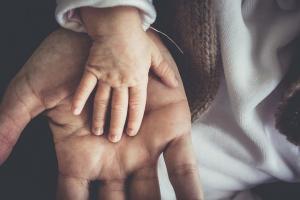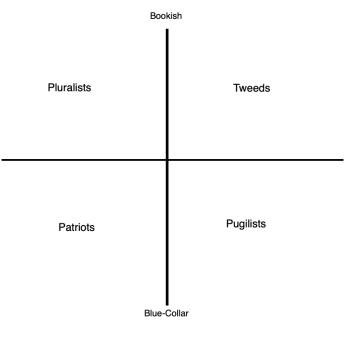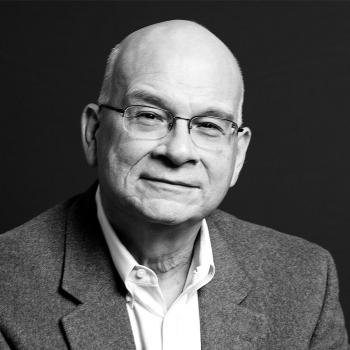 Over at the ever-interesting Law & Liberty site, Rachel Lu has a joint review of three recent volumes—Helen Andrews’s Boomers: The Men and Women Who Promised Freedom and Delivered Disaster, Sohrab Ahmari’s The Unbroken Thread: Discovering the Wisdom of Tradition in an Age of Chaos, and Grace Olmstead’s Uprooted: Recovering the Legacy of the Places We’ve Left Behind. Unusually, I happen to have read (and enjoyed) all three of these books (I wrote in more detail about Ahmari’s and Olmstead’s volumes here and here), and it struck me as an interesting editorial choice to consider them all together.
Over at the ever-interesting Law & Liberty site, Rachel Lu has a joint review of three recent volumes—Helen Andrews’s Boomers: The Men and Women Who Promised Freedom and Delivered Disaster, Sohrab Ahmari’s The Unbroken Thread: Discovering the Wisdom of Tradition in an Age of Chaos, and Grace Olmstead’s Uprooted: Recovering the Legacy of the Places We’ve Left Behind. Unusually, I happen to have read (and enjoyed) all three of these books (I wrote in more detail about Ahmari’s and Olmstead’s volumes here and here), and it struck me as an interesting editorial choice to consider them all together.
At the heart of the joint review is a motif Lu views as common to all three books: their authors’ inability “to discern a way forward” in the face of centrifugal forces tending to sweep away the forms and ideas of the past. For these writers, it is not obvious “whether (and how) their descendants can thrive in the world that is unfolding before their eyes.” Many nonfiction books suffer from the “last chapter problem,” but in the domain of conservative thought, this problem becomes acute: an absence of direct calls to action is, in some sense, intrinsic to a tradition of thought committed more to preservation than radical transformation. The right may be capable of offering up devastating indictments of the status quo, but its positive program consistently tends to be murkier.
The older I get, though, the less interested I am in reading straight-up polemics against the contemporary world—partly because, frankly, I grew up around plenty of evangelical critiques of the modern philosophical status quo and don’t need further persuasion. And I don’t think any of the books Lu reviews (except maybe Boomers) really fall into this category, but I do agree that constructive paths forward seem to be in short supply.
And at its worst, this mood tends to manifest, paradoxically, as a kind of conservative antinatalism. In stressing over and over again how the modern world tends to revile and subvert the values of the traditional family, the most vociferous cultural critics cannot help but cast a dark shadow over family life as such. In the same way that some left-wing environmental activists reason that it would be immoral to bring children into a world cursed to suffer the ravages of climate change, some right-wing writers seem to hint that millennials would be better off not bothering to bring children into a sickening society at all. This implication is almost certainly not intentional, but it’s noticeable nevertheless.
At this point in my life, as I sit here with my infant son sleeping soundly next to me, I’ve come to see that most recent attempts at future-casting grand conservative theories tend either to romanticize the past or baptize the present. These may be interesting enough on a strictly academic level—and I have no intention of stepping out of those conversations—but the books and ideas that actually touch the visceral, parental part of me are books like Leah Libresco Sargeant’s Building the Benedict Option: A Guide to Gathering Two or Three Together In His Name. In terms of what I’d like to see more of: a lot of dads in the homeschooling movement wrote books about family life while they were still in the midst of child rearing, which seems rather premature in hindsight; instead of that, I’d like to read the heretofore-untold stories of those parents of millennials who raised children who stayed faithful into the future.
And beyond that? I’ve written a couple times now about Jonathan Lear’s book Radical Hope: Ethics in the Face of Cultural Devastation, an extended study of the faith and hope that are required to act in service of one’s culture and tradition when everything that made one’s world intelligible seems to be falling away. When such circumstances are present, one must develop the faculty of being able to “make creative decisions in radically new historical circumstances” in order to secure “values, customs, and memories in a new context.” Radical Hope offers a decidedly negative view of future-casting; indeed, the impossibility of knowing what lies ahead is precisely the point. And yet these are the conditions within which we millennials find ourselves, which we must reckon with every day.
Something like radical hope, I think, is the answer that Lu is looking for, and not finding, in these three books. Crucially, this is very far from legislative prescriptivism or a ten-point plan to save America; it is a fundamental shift in orientation toward history and one’s place in it. But it may be this shift, in the end, that proves the most important—even if its precise applications must remain uncertain until the moment of choosing finally arrives. In anticipation of that time, learning to cultivate the habits of virtue required to act properly in that moment strikes me as a paramount objective.












